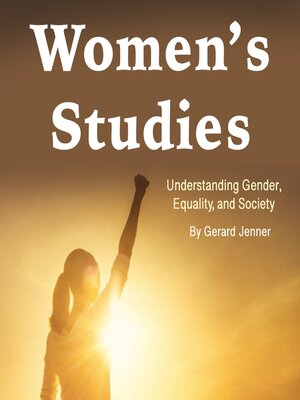Women's Studies
audiobook (Unabridged) ∣ Understanding Gender, Equality, and Society
By Gerard Jenner

Sign up to save your library
With an OverDrive account, you can save your favorite libraries for at-a-glance information about availability. Find out more about OverDrive accounts.
Find this title in Libby, the library reading app by OverDrive.



Search for a digital library with this title
Title found at these libraries:
| Library Name | Distance |
|---|---|
| Loading... |
This audiobook is narrated by a digital voice.
Women's Studies emerged as an academic discipline during the second wave of feminism in the 1960s and 1970s, challenging the traditional male-centered perspectives that dominated higher education while creating new frameworks for understanding women's experiences, contributions, and struggles throughout history. This interdisciplinary field developed from the recognition that women's voices and perspectives had been systematically excluded from scholarly discourse, creating significant gaps in knowledge about half of humanity. The establishment of Women's Studies programs represented both an intellectual revolution and a political project aimed at transforming not only what we study but how we approach knowledge creation and whose experiences count as worthy of academic attention.
The roots of feminist consciousness can be traced back centuries, though the formal articulation of women's rights as a political issue emerged most clearly during the Enlightenment period when thinkers like Mary Wollstonecraft challenged prevailing notions about women's intellectual capabilities and social roles. Wollstonecraft's "A Vindication of the Rights of Woman," published in 1792, argued that women's apparent intellectual inferiority resulted from lack of educational opportunities rather than natural limitations, establishing foundational arguments that would resonate through subsequent centuries of feminist activism and scholarship.
The nineteenth century witnessed the emergence of organized women's movements that challenged legal, economic, and social restrictions while creating new spaces for women's political participation and intellectual development. The Seneca Falls Convention of 1848, organized by Elizabeth Cady Stanton and Lucretia Mott, marked a watershed moment in American feminism by articulating a comprehensive critique of women's legal and social subordination while demanding equal rights in education, employment, and political participation.







